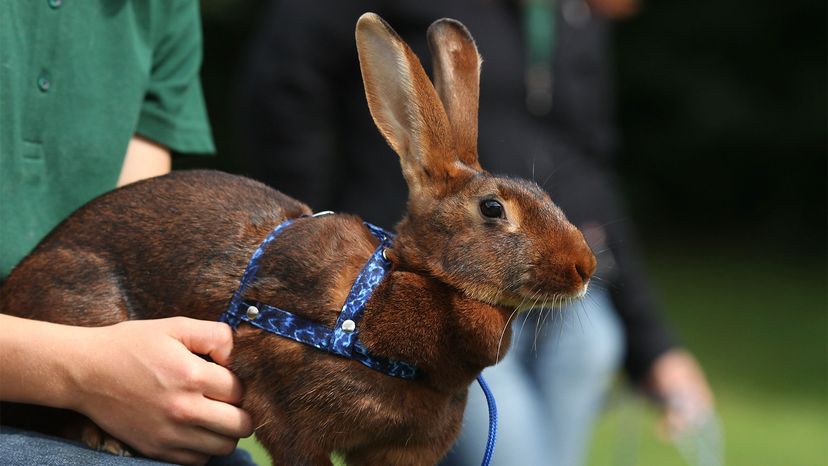While veterinarians in the United States most often eschew vaccinations for bunnies (they're not prone to rabies or distemper like your dog or cat), rabbits in other parts of the world — Europe, for instance — require yearly vaccinations to protect against three deadly and painful rabbit diseases: myxomatosis and two different strains of Rabbit (Viral) Haemorrhagic Disease (R(V)HD). Whether your rabbit requires vaccinations or not, yearly veterinary care is important because rabbits can develop diseases and parasites just like other animals.
For starters, rabbits have an astronomically high incidence of uterine cancer — something like 80 percent of females will develop the disease in the first six years of life, so it's important to get your female bunny spayed after 6 months old.
There are also a few diseases rabbits can transmit to humans. One of the most common is a bacteria called Pasteurella multocida, which rabbits (and dogs and cats, too, for that matter) may carry in their upper respiratory tract and transmit to you via a bite or scratch. In rabbits, it causes respiratory infections and may lead to abscess formation, so it's worth monitoring your rabbit for the sniffles.
"A parasite called Encephalitozoon cuniculi may cause sudden neurologic signs, and can be spread from mother to offspring," says Brehm. "People with compromised immune systems would be the most susceptible to catching a disease from an infected rabbit."
Pet rabbits are legal in most parts of the world — certainly in all the states in the U.S. Easier to keep than most exotics, bunnies need to be kept cool and taken out of their enclosure regularly to hop around and climb — so rabbit-proof your house! They're fond of chewing cords and carpet, so be sure to keep an eye on your bunny while you're snuggling on the sofa watching Netflix with him.
Learn more about having a rabbit as a pet in "The Bunny Lover's Complete Guide To House Rabbits: The Ultimate Handbook for Successfully Living Indoors with a Pet Rabbit" by The Bunny Guy. HowStuffWorks picks related titles based on books we think you'll like. Should you choose to buy one, we'll receive a portion of the sale.



